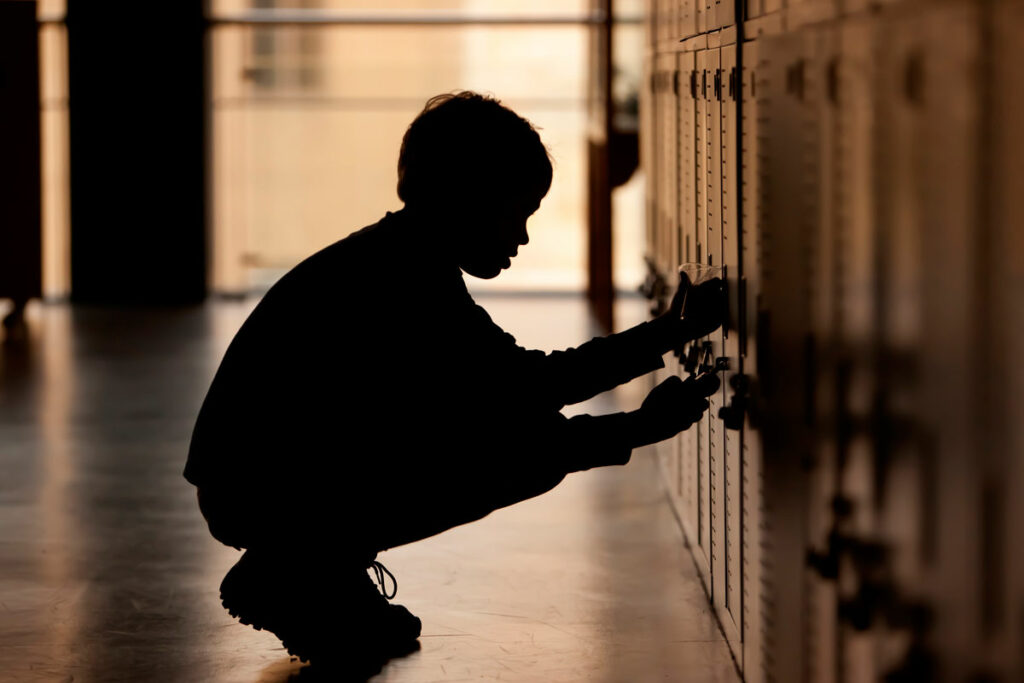
Credit: iStock- Tobiaschu
The first time I met Micah, a Black elementary school student, I was struck by his cherubic face, bright eyes and nonstop knock-knock jokes that had me laughing out loud. He was warm and polite. His grandmother — his guardian — sat close by during the visit, gently encouraging his respectful tone. She described him as responsible and kind, and everything I saw affirmed that.
So, I was puzzled — then troubled — by his school’s mental health referral. Teachers had described Micah as a “behavior challenge” and asked for help managing his “defiance.” His school records even falsely claimed his mother was a “cocaine addict.” None of it matched the child in front of me.
As I got to know him, the real story came out: Micah had just watched his father collapse and die after he tried unsuccessfully to resuscitate him. My heart sank as my evaluation revealed that his grief had been misread as misconduct, his pain distorted through the lens of pathology. Frustrated by repeated suspensions and missed learning, his grandmother eventually transferred him to another school.
As a child psychiatrist, I’ve seen how often Black, Hispanic, and Indigenous children, like Micah, are unfairly mislabeled and misunderstood. One diagnosis keeps showing up in ways that harm these children: oppositional defiant disorder (ODD) — a common childhood behavioral disorder characterized by anger, defiance and vindictiveness.
Too often, ODD becomes a “bad kid” label, punishing racially minoritized children for behaviors rooted in trauma, racism or structural inequities, rather than addressing the hardships they face.
Oppositional defiant disorder is overdiagnosed in Black, Hispanic and Indigenous children because of biased behavior assessments. Adultification bias leads Black children to be seen as older, stronger and less innocent than they are. Anger bias results in Black students being perceived as angry even when they’re not.
This overdiagnosis often ignores what’s really going on. Anger or irritability can be signs of anxiety or depression, while defiance can be an adaptive response to trauma or discrimination. Gender-nonconforming students of color are at special risk of being labeled defiant when they are simply resisting mistreatment or bullying.
But instead of getting support, these kids are too often punished and criminalized.
Since racially minoritized children already face higher rates of suspension, expulsion and police involvement, an improper diagnosis reinforces exclusion, pushing them out of school and into the justice system.
An ODD diagnosis doesn’t explain a child’s behavior. It blames them for it.
In 2013, California began to ban suspension for willful defiance, eventually in all grades K-12. This measure reduced overall suspensions, but racial disparities in discipline remain stark. Black and Indigenous students are suspended earlier and more often, with Black students with disabilities most affected in middle school.
Disciplinary codes that remain — like “disruption,” “defiance” and “profanity” — are vague and subjective, leaving room for racial bias. In one California school district, Black students with disabilities accounted for three-quarters of all suspensions for these offenses.
While students can’t be suspended from school for willful defiance anymore, teachers can still suspend students from class for it. An oppositional defiant disorder diagnosis can still justify exclusion — through special education placements, psychiatric referrals, or other punitive measures — serving as a backdoor for exclusionary discipline.
There is no denying that educators face enormous challenges in classroom management, and that they often don’t have the best tools and resources to help. Restorative justice and trauma-informed approaches, for instance, can be difficult to implement because of limited staffing and administrative support. But it’s also true that questioning the “bad kid” label with ODD or defiance can lead to more just outcomes.
How? Here are four things educators and other adults can do:
Recognize bias in discipline and mental health diagnoses
A Black student questioning authority may be labeled defiant, while a white student is called assertive for the same behavior. Bias training and reflective practice are key to addressing these misperceptions. While California has introduced implicit bias training as part of teacher professional development, none of these initiatives specifically address diagnostic bias.
Contextualize student behavior
Before labeling a child oppositional, ask:
- Are they facing hunger, housing instability or bullying?
- Are they reacting to discrimination or past trauma?
Building strong relationships with students and families helps uncover the full story.
Support, don’t punish
Because they address the root causes of distress, behavioral interventions that teach emotional regulation and restorative practices that repair relationships can be more effective than exclusion.
Be skeptical of mental health referrals
Referrals don’t guarantee unbiased care. Psychiatrists, psychologists and therapists aren’t required to account for racism or the school-to-prison pipeline when diagnosing oppositional defiant disorder. California’s medical and behavioral health boards don’t mandate an antiracist approach, meaning students are often assessed without consideration of systemic factors.
ODD’s overdiagnosis among Black, Hispanic and Indigenous students reflects a deeper problem, where certain children’s emotions are pathologized and punished, while the emotions of others receive understanding and support.
By questioning bias and shifting from labels to solutions, schools can ensure every child gets the support they need to thrive.
For Micah, the Black elementary school student grieving his father’s death, the solution wasn’t medication or behavior interventions. It was removing the ODD label and validating his grandmother’s sense that the school was mistreating him. What helped was switching schools and witnessing his grandmother go to bat for him. These actions gave him what he truly needed: love, support and a sense of belonging.
There are no bad kids. There are only systems that fail them. Let’s lift them up, not push them out.
•••
Dr. Rupinder K. Legha is a double board-certified psychiatrist based in Los Angeles who specializes in child, adolescent and adult mental health.
The opinions expressed in this commentary represent those of the author. EdSource welcomes commentaries representing diverse points of view. If you would like to submit a commentary, please review our commentary guidelines and contact us.
